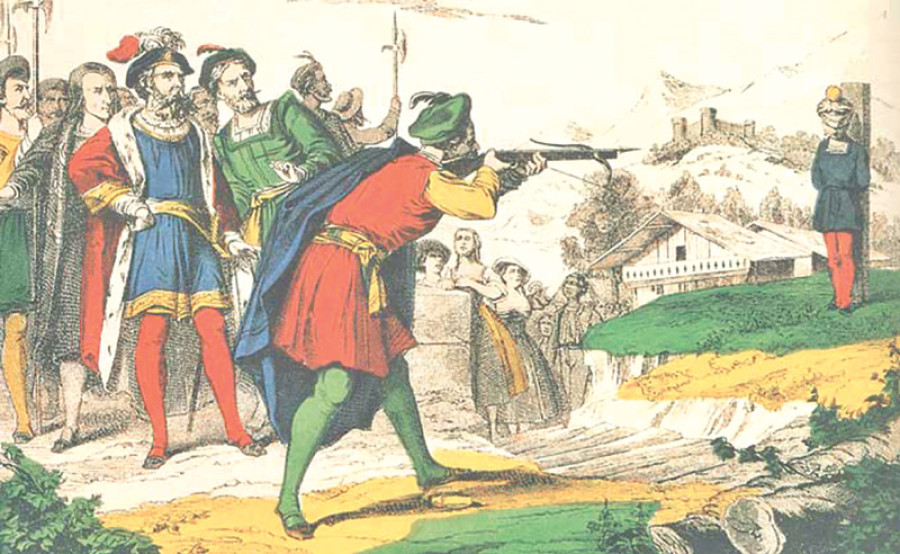Opinion
How to be Swiss
Federalism seems to be one the most controversial topics in Nepali politics at the moment. I am not Nepali and I do not think my opinion on this issue is of particular importance.
Marc Allemann
Federalism seems to be one the most controversial topics in Nepali politics at the moment. I am not Nepali and I do not think my opinion on this issue is of particular importance. But I am Swiss, so I know one or two things about federalism.
We are very proud of being a federation. I cannot emphasise this enough. It is part of what defines Switzerland, and we tend to act as if we invented the concept—just like we invented chocolate, banks, and mountains (we did not actually). That means you cannot pit nationalism against federalism in Switzerland, as some commentators tend to do in Nepal. In Switzerland, patriotism means believing in the federation.
Celebrate your differences
Another thing to consider: if Nepal wants to become a federation, a creation myth like we have in Switzerland is incredibly useful. The Swiss tell our kids that our federation was created after a man was forced to shoot an apple from his son’s head with a crossbow. This made the man so angry, he killed the evil bailiff who had thought up this cruel challenge. After the evil count’s death, the first three states of Switzerland decided to form a federation. This creation myth was invented by a German and has been debunked by historians. But that’s beside the point. Every Swiss person still believes in it and loves telling the story. So you need a creation myth. Another fantastic unifying factor is having a common enemy. No matter what part of Switzerland someone is from, we are all united in mistrusting Germany and Germans. Our northerly neighbour is bigger, more powerful, and more important than us. They speak a nicer German than we do and are better at sports (except at Tennis; thank you Roger Federer!). We love to dislike them. I know some Nepalis believe India is the common enemy. But keep an open mind. I am sure there are other viable candidates.
If you want to become a federation, it is important you celebrate your differences and that you learn to make light fun of each other. We have 26 states called ‘Cantons’. Some of them are very old and they have their own cultural identity and dialect. Others are relatively new and do not take themselves as seriously. We like to typecast people, depending on where they are from. People from the Canton of Aargau, for example, are supposed to be terrible drivers. (Incidentally, I’m from Aargau and can attest to that). People from Bern are supposedly very slow. (I live in Bern: they really are.)
Doubt yourself
People make a great deal about the fact that there are four different official languages spoken in Switzerland. We speak German, French, Italian, and Rhaeto-Romanic. This is one instance where you do not need to learn from us. You have 123 languages (according to the 2011 census). Make sure they survive and flourish.
Having a constitution is certainly a commendable thing. We have had one since 1848. But please do not imagine that implementing it will mean your job is done. In Switzerland, each state has its own parliament, its own police force, its own schools, and its own set of laws. It can make life incredibly complicated and frustrating. For example, the state I grew up in decided it needed its own school books for learning French. Instead of using the books the neighbouring states were using, we invested a fortune in developing our own books. This is not cost effective or even
reasonable, but it is part of being a federation. Prepare to embrace such absurdities instead of criticising them.
Being a federation will mean that you continuously question whether you should actually stop being a federation. It is a bit like being a married man who never stops doubting if he married the right woman. Or if marriage is even a good institution. In Switzerland, the Cantons have a lot of power and autonomy. Every so often, political scientists question if we would be better off with more centralisation. The Swiss voters usually do not think so. Still, when Nepal implements federalism, do not expect the discussions to be over. They will continue until the end of time.
The most important virtue of any federalist is patience. Politics in Switzerland is tremendously slow because everyone wants to have their say. There is a Canton in Switzerland that refused to give women the right to vote locally, even though women had received that right at a national level a long time ago. We waited patiently for them to change their mind. Only when they refused did we force them to amend their laws. So my parting advice is to take one day at a time. The Swiss Confederation was not built in a day. And neither will the new Nepali federation.
Allemann, a journalist at the Bern-based Swiss National Radio, is interning at The Kathmandu Post




 9.7°C Kathmandu
9.7°C Kathmandu










